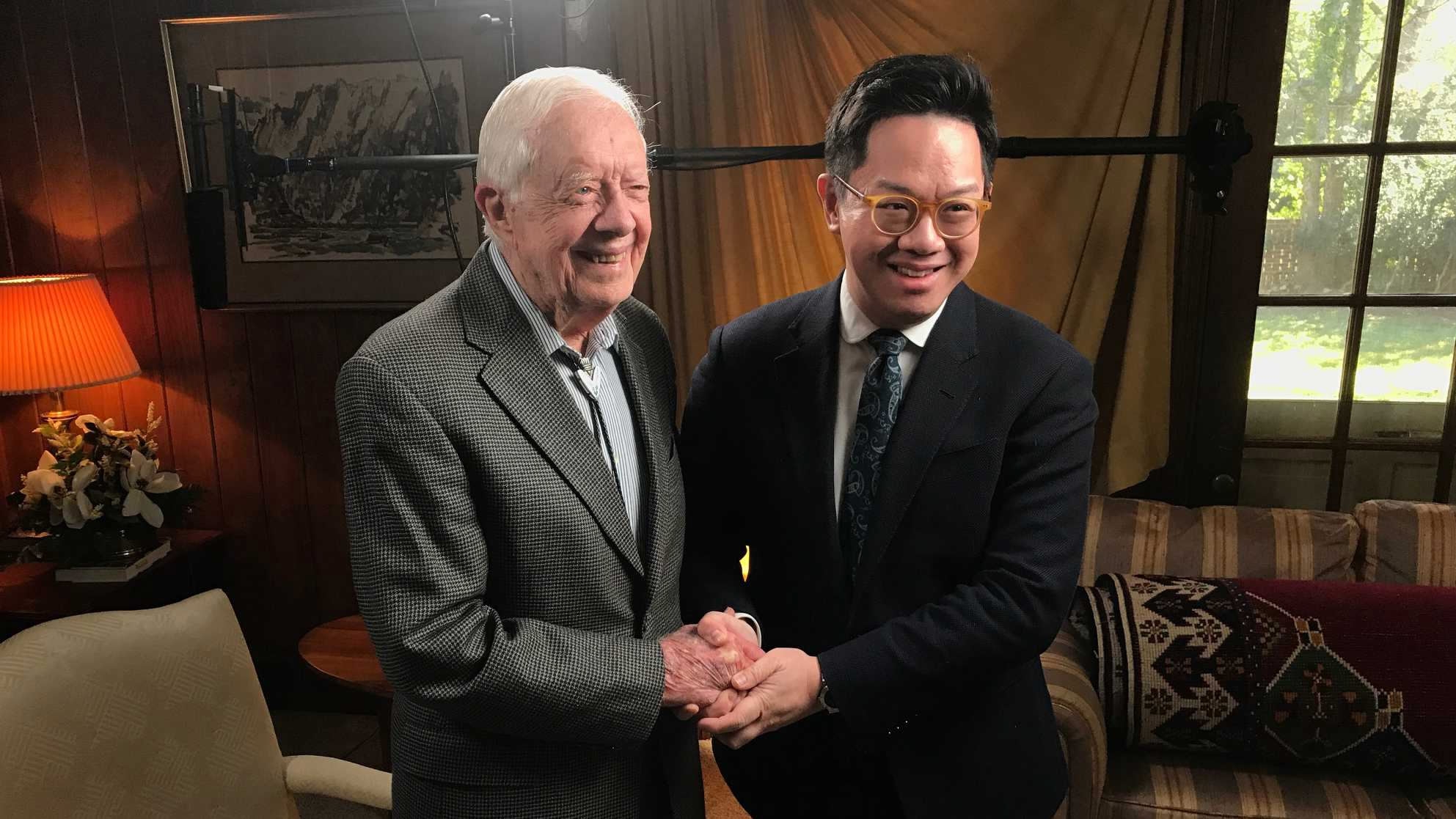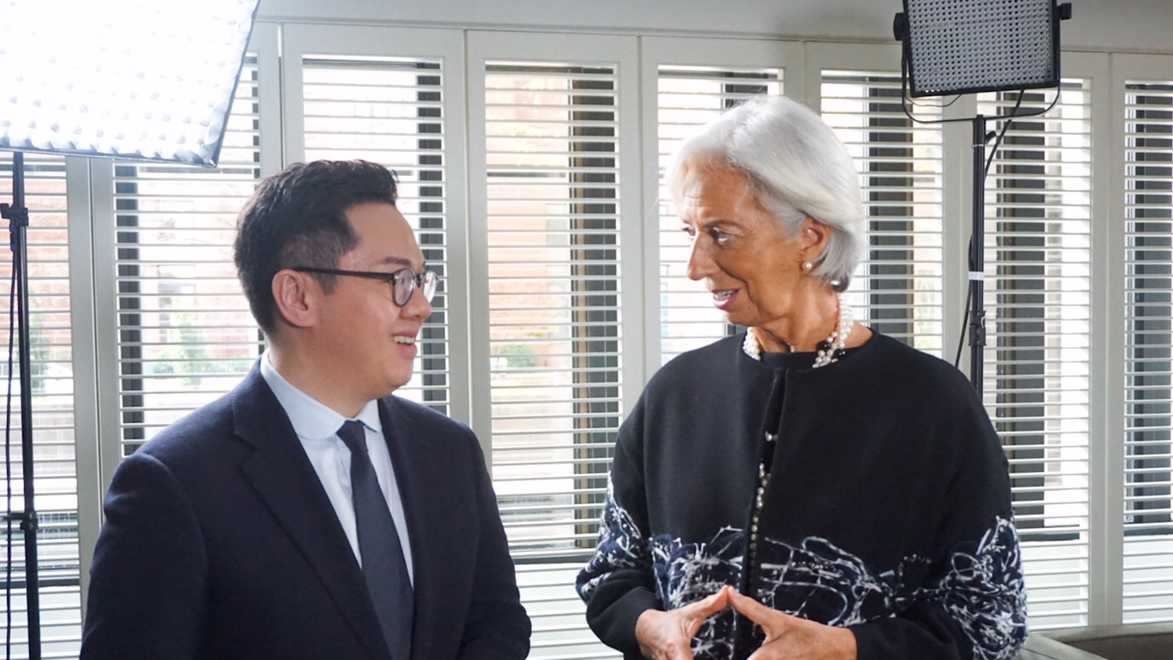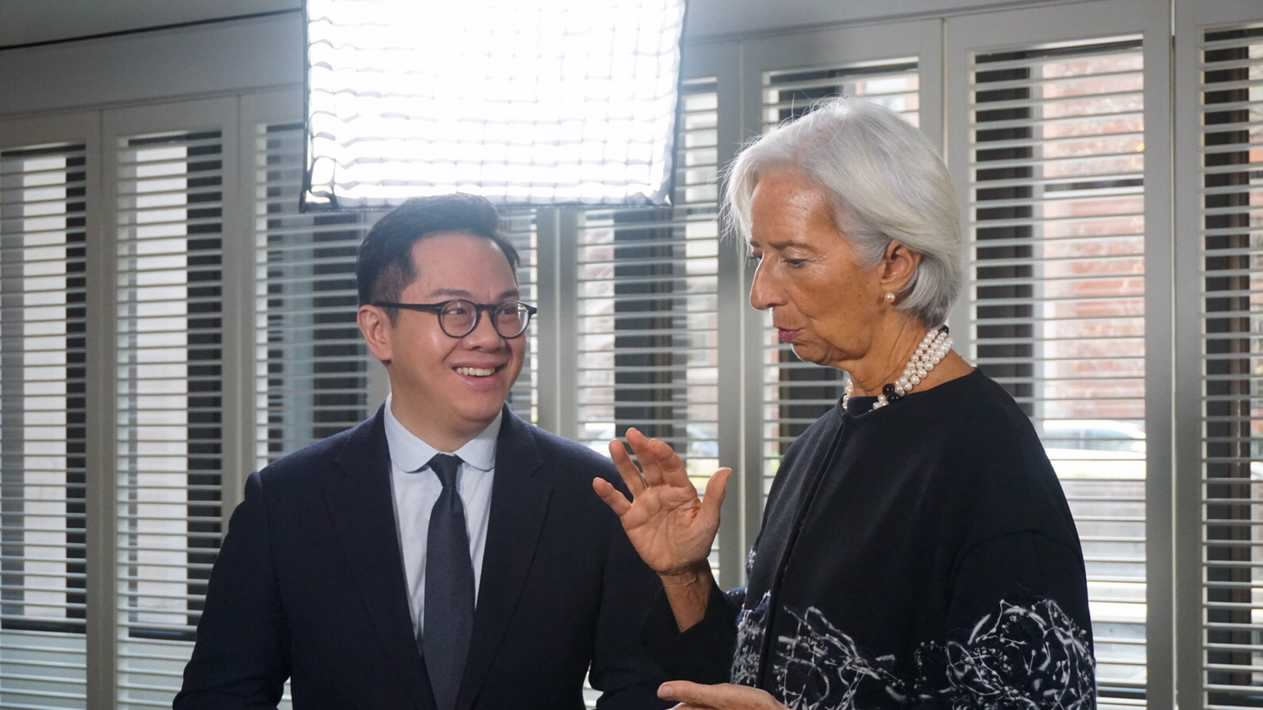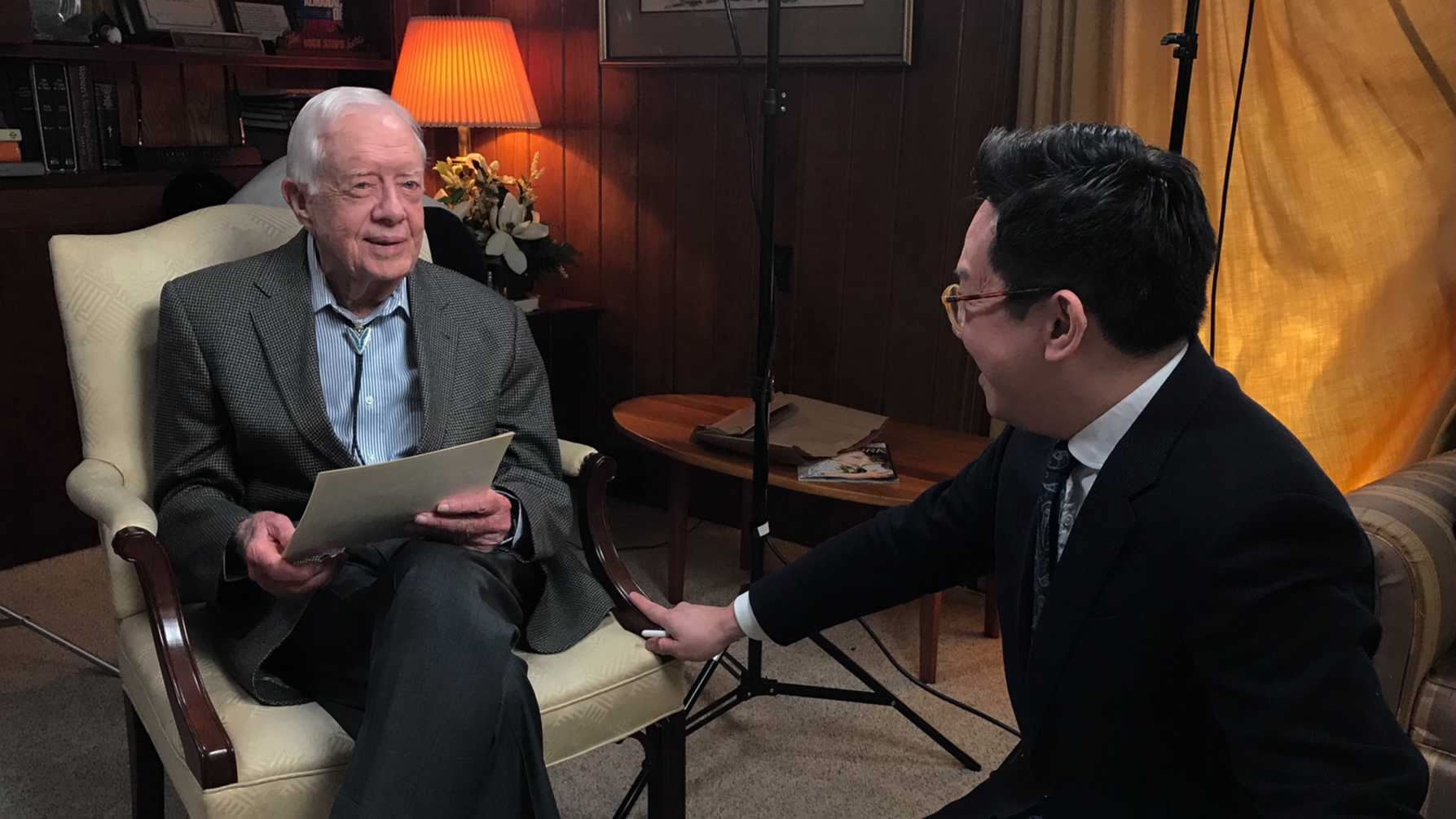
Politics
08:16, 01-Jan-2018
Reporter's diary: Global Future with James Chau
By James Chau

This is a special week: A new year, the first birthday of CGTN, and the start of Global Future with James Chau.
The concept behind my new show is in part a reaction to the major geopolitical events we are witnessing, and in part a wish to collate a narrative that reflects the historical moment we are experiencing.
Over the past 12 months, the impact created by Brexit, a new administration in Washington and the emergence of countries not usually at the decision-making table, have helped transform not only the dynamic between governments, but the way we interact with one another.

CGTN Photo
CGTN Photo
Of course there are many other examples, including those that have given rise to the expansion of inward-thinking in many communities. When I’m not on television, I regularly facilitate international discussions – and this show is one way I can share that with a wider audience.
In September 2016, I traveled to the UN in New York where I met the president of the General Assembly, Mogens Lykketoft, and Danish broadcaster, Mette Holm. What struck me then and since is the frequency with which they speak about the “global future,” and the compassion that must underpin our collective actions. So, it is as much in tribute to our friendship, as it is with a feeling of urgency, that the title of this show is headlined with their two words.
I’m humbled that, in this debuting series, we profile three women who demonstrate a formidable quality of leadership. I wanted to listen to their stories, and learn from them about the direction in which the world is headed, and how we can anticipate and prepare for the changes they predict.
It so happens that all of these women live in the United States, though not all of them are American-born. On the surface Christine Lagarde, Arianna Huffington, and Alicia Garza are best-known for their work at the IMF, Thrive Global, and Black Lives Matter. More deeply, each of them is a formidable community activist who is helping to shape our choices.
Christine Lagarde is very much in person what she conveys in public. Her values – to champion the poor and marginalized – are consistent with the way in which she leads her organization. One example is the day care center she installed inside the IMF, to make sure that the mothers and fathers who work there can provide the same care for their young children that they dream of for children everywhere.

CGTN Photo
CGTN Photo
She’s thoughtful, intent, and extremely witty. When I asked about her “children,” she laughed and said she wasn’t sure her two adult sons would describe themselves as such – even though they would always be her “babies” no matter how old they are. It allowed me to relate to her not only as a global leader, but more importantly as a parent and a fellow human being.
From Washington DC, I went to New York and the home of Arianna Huffington. We have enjoyed a friendship since meeting a couple of years ago at the back of a car in Johannesburg. At the time, she had come out of a burnout and was writing about that experience, which in turn led to her leaving the Huffington Post to establish Thrive Global, a health and wellness movement.
When I sat down to write my questions, I wondered where I should begin. We ended up discussing media, tech, politics, gender equality, social inequity and, yes, social media as well. Arianna can put forward an intellectual voice to any subject – such is her level of experience, and her sincere wish to apply her skills to enrich and empower the vulnerable in society.
In a sense, meeting and interviewing Alicia Garza always promised to be a raw experience. My mother was a social worker in London, at a time when being Chinese – a person of color – was not always straightforward. More recently we have become even more aware, due to the events that gave birth to Black Lives Matter, of the cruelty and violence that our brothers and sisters face all over the world.
What is so unexpected about Alicia is the way in which she calmly and rationally communicates her message. She is outraged. But she is at her core a person of great faith and resource – hardly the figure of hate and terror she is sometimes accused of being. I was prepared to be criticized for interviewing her, and for filming outside the former Black Panther headquarters near her Oakland home. There have been stray negative comments, but I feel that as divisive as the world sometimes appears, there remains a coalition of people who are open to listening to ideas other than the ones they normally subscribe to.

CGTN Photo
CGTN Photo
That is what I hope this show achieves – not a narrative of like-minded individuals who express a certain side of an argument, but a group of influential leaders who are committed to representing our voices at the highest levels.
We feature one man – former US president Jimmy Carter – who for decades has been doing just that. Be it in his work to eradicate guinea worm disease, or to establish peace in the Middle East for which he won the Nobel Prize, he embodies "consistency" when we are sometimes too blinded by change for change’s sake, and dazzled by political showmanship.
For our interview, he chose for us to meet not in his own house, but in the house just across the road, which his parents built and lived in after he left to serve in the US Navy. It’s a beautiful and modest structure, to this day filled with home-made Christmas decorations and probably much of the same furniture that was there when the house was new.
He gifted me with an extraordinary conversation – as did Lagarde, Huffington and Garza. Please listen, share and hopefully use it to enhance your lives in the year ahead.
Happy 2018.

SITEMAP
Copyright © 2018 CGTN. Beijing ICP prepared NO.16065310-3
Copyright © 2018 CGTN. Beijing ICP prepared NO.16065310-3